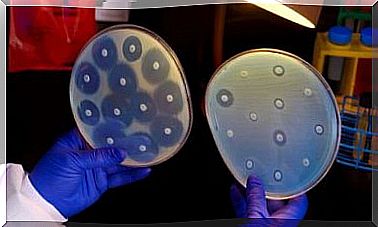Benefits Of Spirulina Alga
Spirulina is a blue-green algae very rich in nutrients, which is often used as a nutritional supplement due to the benefits it brings to the body. It should be noted that it is an important source of vegetable protein, in addition to chlorophyll. Do you know its benefits?
Nutritional value of spirulina algae
Much of the benefits of spirulina algae come from its variety of essential nutrients. Specifically, according to information compiled in the United States Department of Agriculture database, a serving of only 7 grams of this supplement can provide:
- Protein: 4 grams
- Thiamine (vitamin B1): 11% of the RDA for healthy adults.
- Vitamin B2 (riboflavin): 15% of the RDA for healthy adults.
- Vitamin B3 (niacin): 4% of the RDA for healthy adults.
- Copper: 21% of the RDA for healthy adults.
- Iron: 11% of the RDA for healthy adults.
Among other things, it should be noted that it also contains moderate amounts of magnesium, potassium and manganese, in addition to having only 20 calories. It even provides a small amount of fatty acids, such as omega 3 and 6.
Proteins and amino acids
It is important to highlight in a special way the protein content of spirulina alga, since it corresponds to 70% of biologically complete protein. It has the 8 essential amino acids and also concentrates 10 of the 12 non-essential amino acids.

Spirulina algae benefits
Spirulina is a healthy supplement for those who have nutritional deficiencies, since, according to a study published in the Journal of Nutrition Research, a teaspoon of the product (between 3 and 5 grams) is enough to supplement daily nutrition. This, in turn, could be beneficial in preventing problems such as anemia.
This, as a study published in Cellular & Molecular Immunology explains , could be the result of stimulation of the hemoglobin content of red blood cells and their ability to enhance immune function.
On the other hand, it is considered a good modulator of immune functions, since it improves defense mechanisms against various diseases. According to research published in the European Archives of Oto-Rhino-Laryngology , it is effective against the symptoms of allergic rhinitis.

In turn, it has been a source of research for its effects on cardiovascular health. In this sense, a study released through the Journal of Medicinal Food , determined that it can contribute to a reduction in high blood pressure, since it increases the production of nitric oxide.
As this work explains, nitric oxide is a signaling molecule that intervenes in the relaxation and dilation of blood vessels. Likewise, other studies have determined that it contributes to regulating cholesterol levels.
Spirulina seaweed and muscle strength
One benefit that may be of interest to those looking to maintain their figure is that spirulina helps increase muscle strength and endurance. Coinciding with a publication in Medicine & Science in Sports & Exercise , this supplement reduces muscle fatigue and, therefore, is useful for better sports performance.
This, added to its protein and micronutrient content, could support weight loss, especially in overweight patients.
Definitely
Spirulina algae is a healthy supplement that can help you get your daily dose of essential nutrients. Although it is not a miracle product or similar, its consumption is a way to promote well-being. However, before taking it, it is best to consult your doctor or nutritionist.









